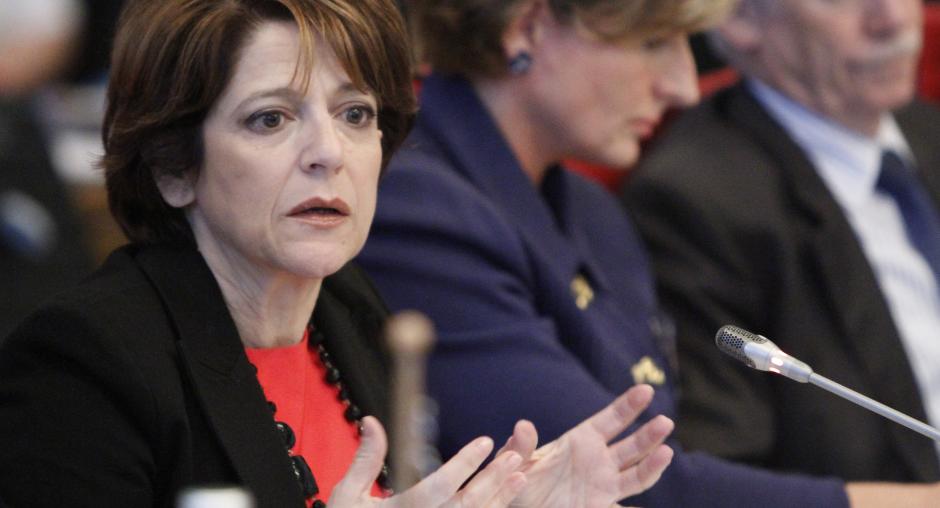OSCE Special Representative encourages Portugal to continue its anti-trafficking efforts

LISBON, 30 November 2012 - The OSCE Special Representative and Co-ordinator for Combating Trafficking in Human Beings, Maria Grazia Giammarinaro, at the close of her visit to Portugal today, praised the government for giving priority to the fight against human trafficking.
“In recent years, Portugal has established a mechanism that aims to ensure that victims are given assistance and support, as well as the possibility to work and be socially included. The challenge today is to make this forward-looking model work for a larger number of people,” the Special Representative said following a meeting with Teresa Morais, the Secretary of State for Parliamentary Affairs and Equality.
Portugal is a country of transit and destination, as well as of origin, for trafficking in human beings, with increasing numbers of male victims of trafficking for labour exploitation identified in recent years.
During her four-day visit, Giammarinaro also opened a training workshop for Portuguese labour inspectors on trafficking for labour exploitation in Porto and held a lecture on the subject at the University of Coimbra, the nation’s oldest institute of higher learning.
“Portugal has been active in establishing protection measures for women and men trafficked for labour exploitation. An effective way to enhance such a policy is to ensure legal counselling and make compensation a reality for every trafficked and exploited person. This is a crucial aspect of an empowerment strategy that enables trafficked persons to move forward with their lives and prevents re-trafficking,” Giammarinaro said.
The country visit and resulting recommendations will serve as a resource for formulating Portugal’s third national action plan on trafficking, which will follow the 2011-2013 Second National Action Plan. Giammarinaro met a series of key anti-trafficking stakeholders from government and civil society in Lisbon, Porto and Coimbra. These included the National Rapporteur on Trafficking in Human Beings, as well as non-governmental organizations, trade unions, academics, the Portuguese Observatory on Trafficking in Human Beings, the Inter-ministerial Committee on Human Trafficking, the Justice Ministry, the Parliamentary Subcommittee on Equality, the National Authority for Labour Conditions and the Foreign Ministry.
